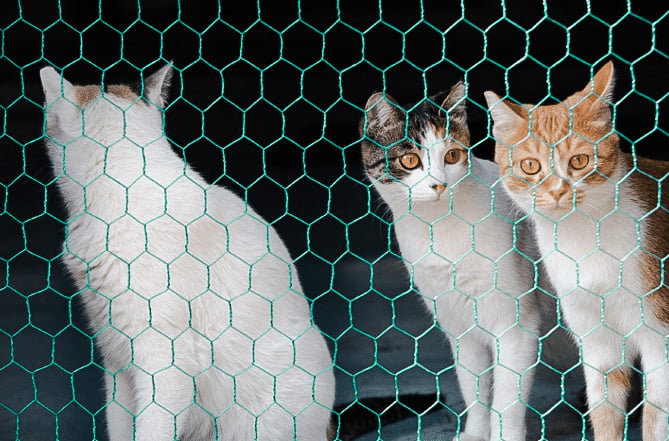The Grand Strand Humane Society is an open admission animal shelter which takes in animals from Myrtle Beach, a city on the east coast of the USA. News media (Myrtle Beach SC News) has reported what I would call an uproar among people connected to the shelter and perhaps to a certain extent within the shelter because, allegedly, the executive director, Jessica Wnuk, approved the purchase and use of an unregulated drug treatment for feline infectious peritonitis (FIP) which was imported from China.

The reports from Myrtle Beach SC News are poorly written in my opinion because they are rambling and unclear (sorry 😢). And they don’t state what this unregulated drug is. My belief is that it is GS4441524 also known as EV0984 (correct per another news media site). In February 2020 I wrote about it as a possible drug treatment for FIP and Covid in people (click this to see that article). It was highly speculative at the time and still is. In fact, the treatment has probably lost all credibility over the intervening couple of years.
$11,000 worth of drugs were purchased from a drug salesman whose name is Mark Thompson. Eleven cats with FIP were treated. Four died. News media state that therefore the cost to treat seven cats was $1,600 per cat.

It is also reported that Jess, as she is referred to, purchased the drug from “Joe Bologna”. A different name to the one I just mentioned above which creates confusion. It is said that Jess administered the drug to the cats herself “and did not allow the past vet to do so as she knew it was not to be administered by a vet, nor would a vet do so”.
The implication here is that the executive director of the shelter was bypassing conventional veterinary care and trying out an experimental drug which she had imported from China in an attempt to cure cats suffering from FIP. That is my understanding.
There was a backlash, as mentioned. Some people disagreed with it. The problem appears to have been compounded by the fact that public funds were used to buy the drugs and is reported that there was no invoice. I don’t know if this is true. This is an allegation I would argue. I am playing safe because I don’t want to denigrate somebody without hard facts.
News media published records of the cheques (checks) made payable to Mark Thompson. In all the total spent on this experimental unregulated drug was $10,996.00.
The emphasis has been on the fact that this is an uncontrolled, unregulated drug in America. And it has to be said that China does not have a great record of animal welfare and animal safety in respect of their products. There have been other stories. I remember one regarding a dog food treat imported from China which allegedly killed hundreds of dogs without the American authorities getting to grips with the matter. There was uproar about that as well.

It is said that the Chinese suppliers say that the drug is “highly pure” but in the West you don’t know how good the drug is. You don’t even know whether it’s effective. You have to trust the Chinese manufacturers for consistency and safety and to be brutally honest you can’t do that. You need the oversight of American authorities to tell you whether a drug is safe and effective.
This, then was a risky step to take for the executive director. I think she would agree that it was an example of bad judgement. I don’t think you can take risks with the lives of the animals in your charge. And the drugs were not cheap. Somebody’s paid for that and when you spend public funds or the donations of others you have a responsibility to spend wisely. The executive director of an animal shelter is in effect a trustee of both the funds supporting it and the animals who rely on it.
Although, I agree with one person who commented on the story. She said that news media should not overemphasise the negatives. This is an animal shelter doing a lot of good. The consensus, apparently, is that a mistake was made in buying this drug from China. That should not blind people to the fact that this shelter is doing good work in general.
PETA has weighed in with their usual argument. I support PETA. I like PETA. But they have a rather narrow-minded attitude, in my opinion, about euthanasia of animals in shelters. They tend to favour euthanasia to end misery and suffering. That attitude carries over to feral cats. In this case, their senior liaison officer, Sofia Chauvet, said the following:
“PETA has seen the ‘life at any cost’ mentality lead to paralyzed animals dragging themselves until they bled, dogs warehoused in filthy crates until they died, animals’ bodies rotting in squalor, and now, experimental black-market drugs secretly being given to cats, half of whom reportedly died immediately. ‘No-kill’ policies—which really mean no euthanasia even when it is warranted and a blessing to an animal who is suffering—harm animals and tarnish the reputation of good animal shelters. PETA encourages everyone to support open-admission shelters, which accept all animals in need and treat them as individuals, not as ‘save rate’ statistics.”
Their focus is on the wider issue, namely trying too hard to save lives and not euthanising animals enough. That is my reading of what they state. I tend to disagree with them. But I agree that this drug should not have been used. I think that the executive director would also agree with that in retrospect.

